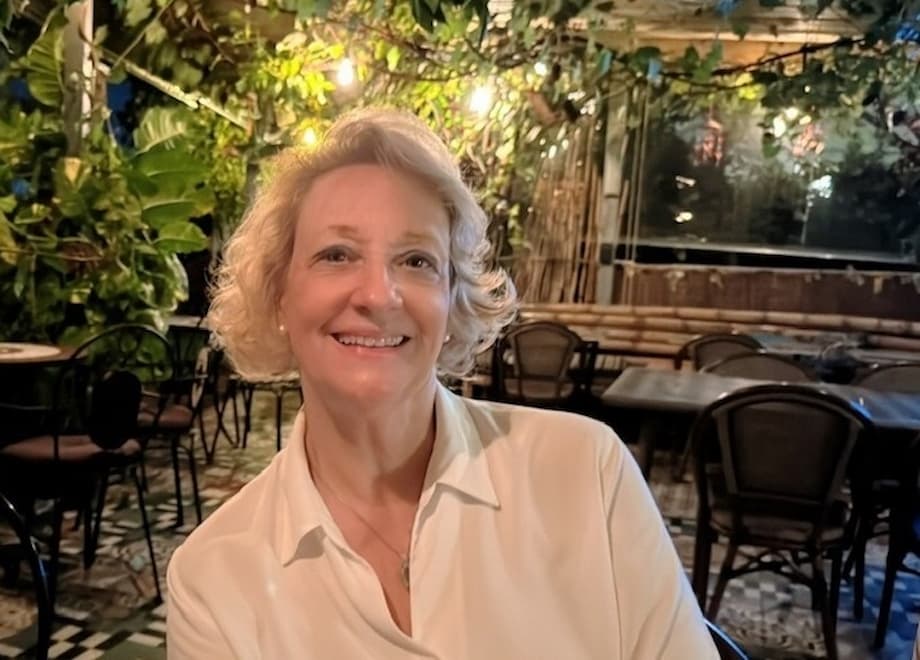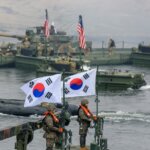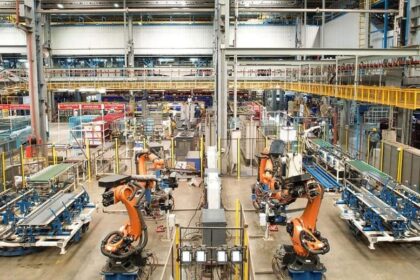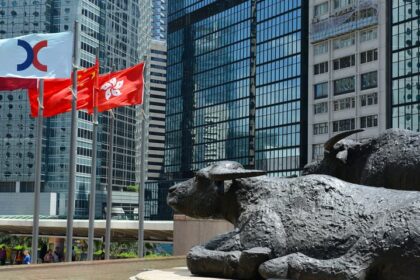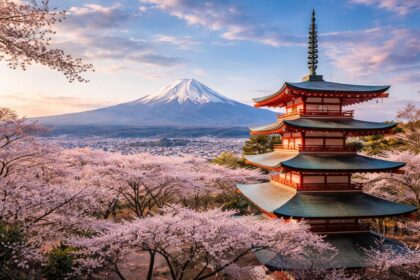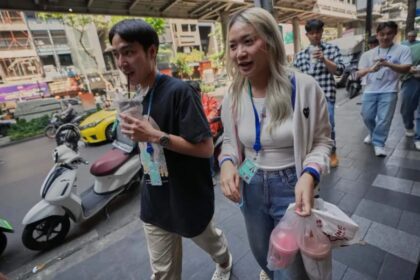Ho Chi Minh City: The World’s Second-Best City for Expat Retention
In June 2025, the Gensler Research Institute released its much-anticipated “City Pulse 2025: The Magnetic City” report, ranking Ho Chi Minh City (HCMC) as the world’s second-best city for retaining international residents. With over 61% of surveyed foreigners expressing no intention to leave, HCMC trails only Taipei and outpaces global heavyweights like Singapore, Sydney, and Berlin. This remarkable achievement is not a fluke; it is the result of a unique blend of affordability, opportunity, vibrant culture, and a welcoming atmosphere that has turned Vietnam’s southern metropolis into a long-term home for over 200,000 foreigners.
- Ho Chi Minh City: The World’s Second-Best City for Expat Retention
- What Draws Expats to Ho Chi Minh City?
- How Does Ho Chi Minh City Compare Globally?
- Everyday Life: Culture, Community, and Comfort
- Challenges and Considerations
- Personal Stories: Expats Who Made HCMC Home
- Broader Implications: What HCMC’s Success Means for Other Cities
- In Summary
But what exactly makes Ho Chi Minh City such a magnetic destination for expats from around the world? Through the stories of long-term residents, expert insights, and comparative data, this article explores the factors behind HCMC’s global ranking and enduring appeal.
What Draws Expats to Ho Chi Minh City?
For many expats, the journey to Ho Chi Minh City begins as a temporary assignment or a short-term adventure. Yet, as countless stories reveal, the city has a way of turning visitors into lifelong residents. Joke Otter van Zuijlen and her husband, for example, left the Netherlands in 1996 for what was supposed to be a three-year stay. Nearly three decades later, they are still calling HCMC home. Their experience is echoed by thousands of others who have found in the city not just a place to live, but a place to thrive.
The People: Warmth and Sociability
Time and again, expats cite the friendliness and sociability of HCMC’s residents as a primary reason for staying. Marcel Lenartz, a Dutch engineer who first arrived in 1992, recalls being invited to a local wedding while cycling through Can Gio, despite being covered in mud and sweat. “People in Ho Chi Minh City, no matter their age or background, are friendly and sociable, something I don’t often see in Europe,” he says. This openness extends beyond casual encounters, fostering a sense of community that is rare in many global cities.
Marcel Lenartz, Dutch engineer and 30-year resident, explains: “There’s never a dull day here. Something new always surprises and excites me.”
Such stories are not isolated. Online forums and expat communities consistently highlight the city’s welcoming spirit. As one long-term expat wrote on Quora, “The number one reason is the people.” This sense of belonging is a powerful draw for those seeking more than just professional advancement.
Affordability and Quality of Life
Compared to other major Asian cities, HCMC offers a high quality of life at a fraction of the cost. According to relocation experts and expat guides, renting a one-bedroom apartment in central HCMC can cost as little as $500 per month, with food, transport, and utilities remaining inexpensive. This affordability extends to healthcare and education, with international schools and private clinics catering to expat needs at competitive rates.
Guillaume Rondan, director of Move to Asia, notes that housing, food, and healthcare in HCMC cost less than in cities like Singapore, Shanghai, or Kuala Lumpur, while still maintaining high standards. This balance allows expats to enjoy a comfortable lifestyle, whether they are young professionals, entrepreneurs, or retirees.
Neighborhoods like Thao Dien in District 2 have become popular among expats for their “mini international village” feel, blending Western comforts with Vietnamese authenticity. The area is dotted with cafes, international restaurants, and green spaces, making it ideal for families and singles alike. As one travel blogger described, “Thao Dien is one of my favourite places to stay, with lots of expats, Bali vibes, and many cafes in the neighbourhood.”
Business Opportunities and Economic Growth
HCMC’s dynamic business environment is another major factor in its expat retention success. The city’s strategic location in Southeast Asia, coupled with a growing middle class and a competitive workforce in tech, manufacturing, and logistics, creates abundant opportunities for foreign professionals and entrepreneurs. Move to Asia’s data shows that 55–60% of their clients come to Vietnam with mid- or long-term plans, often to start businesses, invest, or pursue career advancement.
Vietnam’s rapidly growing economy is reflected in its expanding job market, especially in sectors like technology, education, finance, and tourism. English is widely used in business, and remote work is increasingly accepted, making HCMC attractive to digital nomads and multinational companies alike.
How Does Ho Chi Minh City Compare Globally?
The Gensler survey, which polled 33,000 residents in 65 cities, found that cities retaining the most residents offer not only economic opportunity but also cultural familiarity, personal security, and urban functionality. Taipei topped the list with 64% of respondents preferring not to leave, followed by HCMC at 61%, Singapore at 59%, Sydney at 58%, and Berlin at 51%. HCMC’s high ranking is particularly notable given its rapid transformation from a post-war city to a modern metropolis in just a few decades.
The Gensler report highlights: “Cities that retain residents are often those that offer not only economic opportunity but also cultural familiarity, personal security, and a high level of urban functionality.”
While Singapore is lauded for its attainable public housing and high median incomes, HCMC stands out for its affordability and vibrant street life. Unlike cities where home ownership is out of reach for many, HCMC offers a range of rental and property options, including leasehold agreements for foreigners. This flexibility, combined with lower living costs, makes long-term residence feasible for a diverse expat population.
Everyday Life: Culture, Community, and Comfort
Beyond economics, HCMC’s appeal lies in its rich cultural tapestry and active social scene. The city is a melting pot of tradition and modernity, where ancient pagodas stand alongside skyscrapers, and street food stalls compete with high-end restaurants. Expats can hop on a motorbike to grab dinner at a roadside café or enjoy fine dining without worrying about reservations or high prices.
Leisure and Lifestyle
For many, life in HCMC is defined by its energy and variety. Expats like van Zuijlen fill their days with travel, sports, volunteering, and social clubs. The city’s warm weather and open spaces encourage outdoor activities, from golf and tennis to running and cycling. Community groups and women’s clubs provide support networks, while volunteering opportunities foster deeper connections with local society.
Education and healthcare are also key considerations for expat families. HCMC boasts a range of international schools offering British, American, and International Baccalaureate (IB) curricula. Private hospitals and clinics provide high-quality care, often at lower costs than in Western countries. For those pursuing higher education, Vietnam’s universities offer affordable tuition, especially in fields like engineering and technology, which are in high demand as the country invests in its semiconductor and tech industries.
Safety and Stability
Vietnam is generally considered safe, with moderate crime rates and political stability. Emergency services are accessible, and the city’s infrastructure continues to improve. While traffic congestion and air quality remain challenges, ongoing urban development projects aim to address these issues and enhance livability.
Integration and Belonging
Unlike some global cities where expats remain isolated from local life, HCMC encourages integration. Many foreigners choose to live with Vietnamese families or in mixed neighborhoods, gaining firsthand experience of local customs and traditions. Language barriers exist, but English is increasingly spoken, especially among younger generations and in business settings.
Expats often remark on the city’s ability to surprise and delight. Whether it’s stumbling upon a street festival, joining a neighborhood celebration, or discovering a hidden café, HCMC offers endless opportunities for exploration and connection.
Challenges and Considerations
No city is without its challenges, and HCMC is no exception. Rapid urbanization has brought issues like traffic congestion, pollution, and infrastructure strain. While the cost of living is low, wages for local workers can be modest, and the gap between rich and poor is visible in some districts.
For retirees, the lack of dedicated retirement communities with advanced healthcare and mobility support is a concern. Long-term residents like van Zuijlen hope to see Vietnam develop such facilities to accommodate its aging expat population. Navigating visa requirements and bureaucracy can also be complex, requiring careful planning and documentation.
Despite these challenges, the overwhelming sentiment among expats is positive. Most see the city’s growing pains as part of its evolution and are optimistic about its future.
Personal Stories: Expats Who Made HCMC Home
The stories of Joke Otter van Zuijlen, Marcel Lenartz, and countless others illustrate the city’s transformative power. What begins as a short-term assignment or a leap into the unknown often becomes a lifelong journey. These residents have not only witnessed Vietnam’s growth but have contributed to its development, from building water parks and supporting tech startups to opening international schools and volunteering in local communities.
For many, the decision to stay is as much about the intangible qualities of life in HCMC as it is about practical considerations. The city’s energy, diversity, and sense of possibility create an environment where dreams can be realized and new chapters written.
Broader Implications: What HCMC’s Success Means for Other Cities
Ho Chi Minh City’s rise as a top destination for expats offers valuable lessons for urban planners and policymakers worldwide. Its success demonstrates that retaining international residents requires more than just economic opportunity; it demands a holistic approach that prioritizes affordability, inclusivity, and quality of life.
Cities seeking to attract and retain global talent must invest in infrastructure, support diverse communities, and foster environments where newcomers feel welcome and engaged. As the Gensler report suggests, emotional attachment, safety, and urban functionality are as important as job prospects and salaries.
In Summary
- Ho Chi Minh City ranks second globally for expat retention, with over 61% of surveyed foreigners intending to stay long-term.
- The city’s appeal lies in its friendly people, affordable cost of living, dynamic business environment, and vibrant culture.
- Popular expat neighborhoods like Thao Dien offer a blend of Western comforts and Vietnamese authenticity.
- HCMC’s economic growth, job opportunities, and modern infrastructure attract professionals, entrepreneurs, and families.
- Challenges include rapid urbanization, traffic, and the need for more retirement and healthcare facilities for aging expats.
- Personal stories highlight the city’s ability to turn visitors into lifelong residents through community, opportunity, and adventure.
- HCMC’s success provides a model for other cities aiming to attract and retain international talent.


